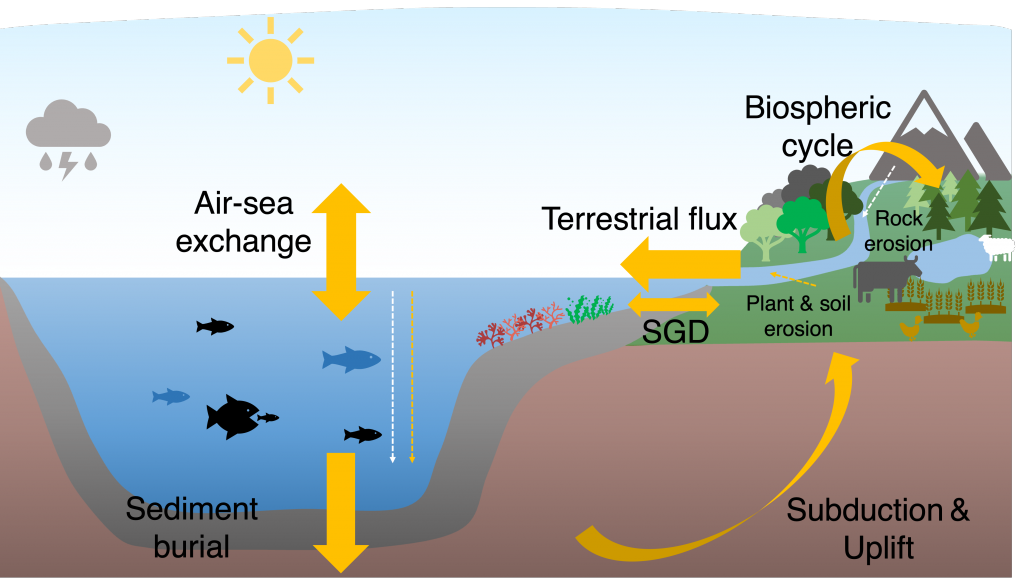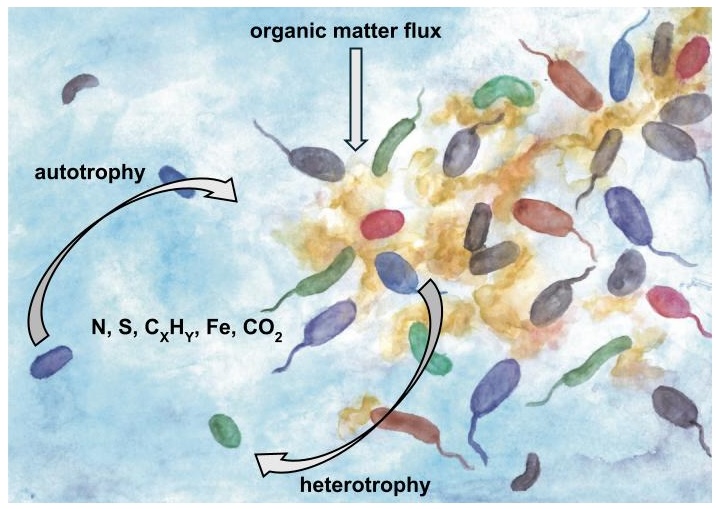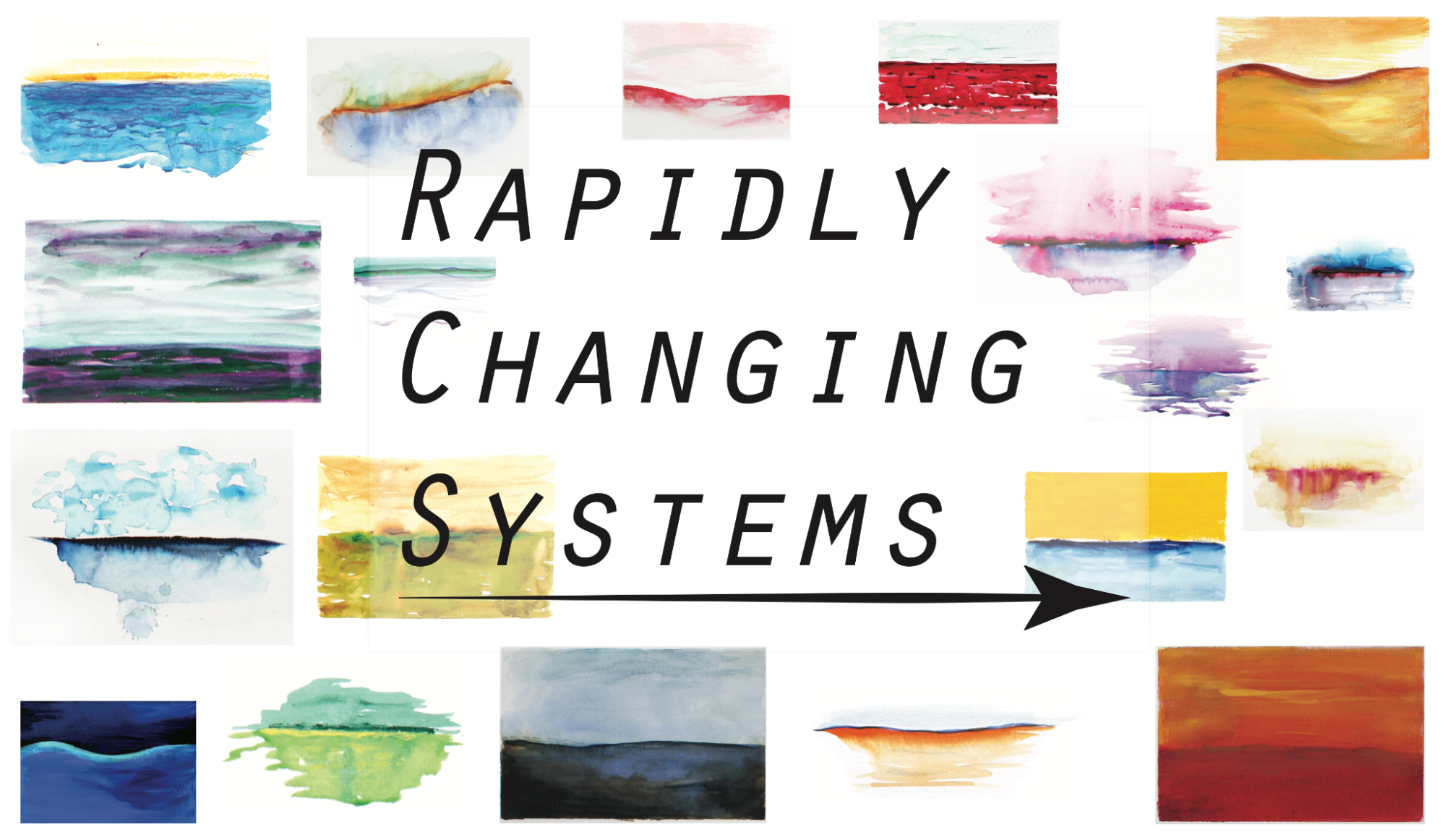Bridging Scales in the Ocean Carbon Cycle
Tuesday June 3
Chairs: Zachary Erickson (NOAA), Daniel Whitt (NASA Ames Research Center), David “Roo” Nicholson (WHOI), Dreux Chappell (USF), Tim DeVries (UCSB)
This session will focus on understanding the natural and anthropogenic carbon cycle at a variety of scales, ranging from interactions between individual organisms to ecosystem-level dynamics. Plenary talks will delve into the natural carbon cycle and different applications of mCDR, highlighting interactions across temporal and spatial scales. Lightning talks will focus on applications of machine learning to bridging scales, from small-scale observations to global-scale models.
Confirmed speakers for this session include Manu Prakash (Stanford Univ.), Melissa Omand (URI), Naomi Levine (Univ. Southern California), Elizabeth Yankovsky (Yale Univ.), Kristen Davis (Stanford Univ.), and Hongjie Wang (URI).
Rivers to Coasts: Biogeochemical Linkages and Environmental Resilience
Wednesday, June 4

Session Chairs: Fei Da (NOAA/GFDL), David Butman (UW), Libby Larson (NASA/NACP), Kanchan Maiti (LSU), Shaily Rahman (CU Boulder)
This session will explore how watershed characteristics and climatic factors shape river biogeochemistry and influence downstream biogeochemical cycles in estuarine and coastal environments, as well as the vulnerability and resilience of these systems to environmental change and extreme events. It is structured into three sections—River Systems, Estuaries and Wetlands, and Coastal Ecosystems—featuring a mix of process-focused plenary talks and case studies. Speakers will share insights from topics such as soil and lithology, chemical weathering, lateral fluxes from wetland systems, microbial processes, and air-sea flux. The session will also highlight a range of observational platforms and numerical modeling approaches used to study these processes in diverse ecosystems.
Confirmed speakers for this session include Suzanne Anderson (CU Boulder), Shuang Zhang (TAMU), Nicole Fernandez (Cornell Univ.), Tom Bianchi (Univ. Florida), Jennifer Bowen (Stanford Univ.), J. Blake Clark (NASA GSFC/UMBC), Lisamarie Windham-Myers (California Delta Stewardship Council and USGS), Qipei Shangguan (WHOI), Etienne Fluet-Chouinard (PNNL), Gloria Reithmaier (Univ. Gothenburg), Benjamin Poulter (NASA GSFC), Simone Alin (NOAA PMEL), Xinyu Li (UW), Anne Kellerman (FSU), Jeremy Testa (UMCES), John Kominoski (FIU), and Cedric Fichot (Boston Univ.).
Constraining the dark ocean carbon cycle: Implications for ocean carbon budgets?
Thursday, June 5

Chairs: Anne Dekas (Stanford Univ.), Randie Bundy (UW), Jeff Bowman (SIO), Anela Choy (SIO)
Dark inorganic carbon fixation is a common and yet poorly characterized phenomenon in the ocean. It is mediated by both chemoautotrophs and heterotrophs (such as through anaplerotic reactions), but the key players, rates, distribution of organisms, and impacts on marine biogeochemical cycling and food web processes are poorly constrained. As budgets of the deep-sea carbon cycle are currently unbalanced, characterizing this process would inform models of the deep sea and contribute to a more complete understanding of marine carbon cycling. This session includes talks ranging from the discussion of rates of inorganic carbon fixation in diverse ocean habitats (including but not limited to the dark water column, deep-sea benthos, and the night-time surface ocean), -omics-based approaches to understanding related metabolic pathways and their distributions and expression, as well as studies informing carbon-cycle models.
Confirmed speakers for this session include Anne Dekas (Stanford Univ.), Alex Jaffe (Stanford Univ.), Chloé Baumas (Stanford Univ.), Emily Paris (Stanford Univ.), Rebecca Salcedo (Stanford Univ.), Sarah Hu (TAMU), Alyson Santoro (UCSB), Steven Haddock (MBARI), and Thomas Reinthaler (Univ. Vienna).
Rapidly Changing Systems
Friday, June 6

Session Chairs: Kristen Krumhardt (NCAR), Melissa Meléndez (Univ. Hawai’i), Rachel Stanley (Wellesley College)
The world’s oceans are transforming rapidly in the face of climate change, with some ecosystems already experiencing dramatic shifts. This session explores changes occuring in some of the most affected marine environments - from polar waters to mid-latitude ecosystems to tropical coral reefs - through a range of spatial and temporal perspectives. Talks will explore rapidly changing ocean conditions, integrating insights from Indigenous knowledge, long-term observational records, and paleo-oceanographic reconstructions of past “rapid” changes. Additional discussions will highlight the impacts of marine heatwaves on fisheries, with lightning talks further showcasing the accelerating pace of ocean change.
Confirmed speakers for this session include Tricia Thibodeau (UNE), Richard Zeebe (Univ. Hawai’i), Emelia Chamberlain (WHOI), Jerry Ivonoff (Indigenous elder, Unalakleet, Alaska, Bering Sea ecosystem), Zachary Gold (NOAA PMEL), and Keisha Bahr (TAMU-CC).



